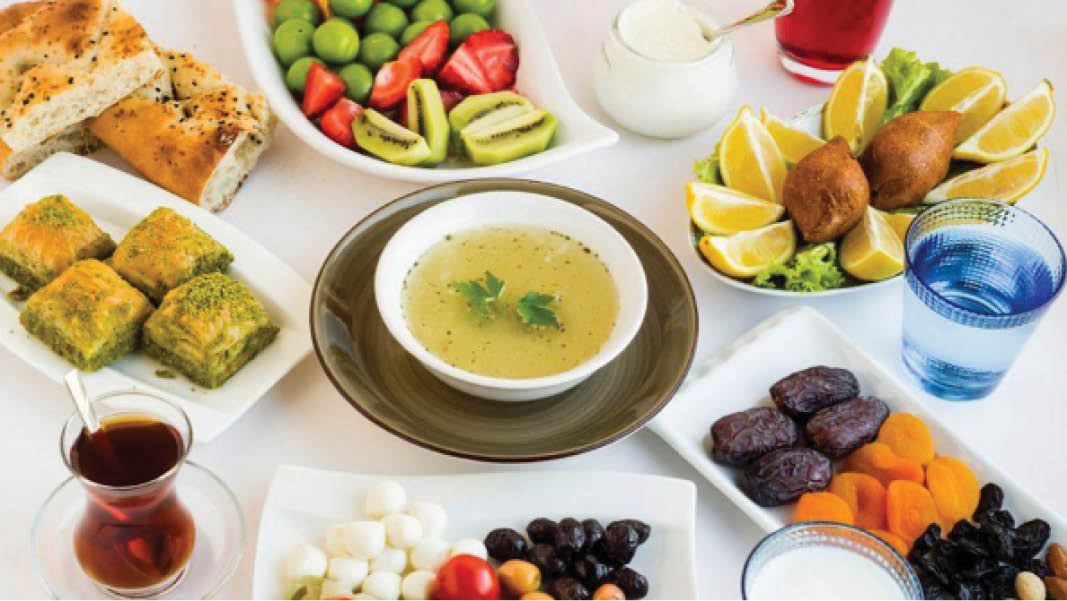Preparing the ideal iftar meal
After a day of hunger, thirst and overall abstinence, we all look forward to the moment to dig into all the scrumptious food prepared to break the fast. But it is also important to bear in mind to take it easy on your body, and ensure to replace all the lost nutrients and water during […]

After a day of hunger, thirst and overall abstinence, we all look forward to the moment to dig into all the scrumptious food prepared to break the fast. But it is also important to bear in mind to take it easy on your body, and ensure to replace all the lost nutrients and water during the day. We’ve gathered a few tips to keep at the back of your mind when preparing the iftar meal:
Keep it light:
Serving an appetizer is healthy, and at the same time fulfilling. Something like a soup made with a mix of protein and vegetables is a perfect choice. Not only does it do the job of providing your body of many of the nutrients it lost during the day, it also doesn’t weigh you down before you get to the main dish.
Keep it fresh with fruits:
Fruits are rich in water and in vitamins as well, which is why it is a staple on almost every iftar table. From dates, organs, watermelon, you name it. Taking a proper serving of fruits is very essential when breaking the fast.
Drink up:
Replenishing the lost liquids is very important for hydration. Water, natural fruit juices and milk are all good options. But try to stay away from fizzy drinks and drinks loaded with sugar.
Balance the main dish:
The star of the show should be filling, and preferably not something fried. Instead of frying your food, roast, grill, steam and bake instead. Also, accompany the dish with a side of vegetables like a tasty salad.
Don’t forget the carbs:
The iftar meal should feature carbohydrates as well, to provide your body a source of energy. Ideally, go for rice, whole grains, potatoes and the like. They also provide an excellent source of fiber and minerals.
